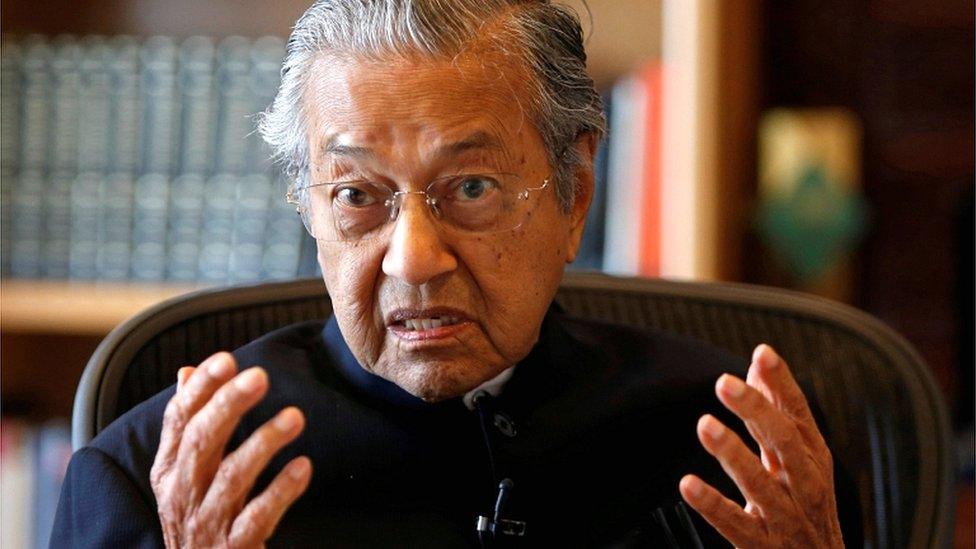Malaysia's election: A battle of old allies
- Published
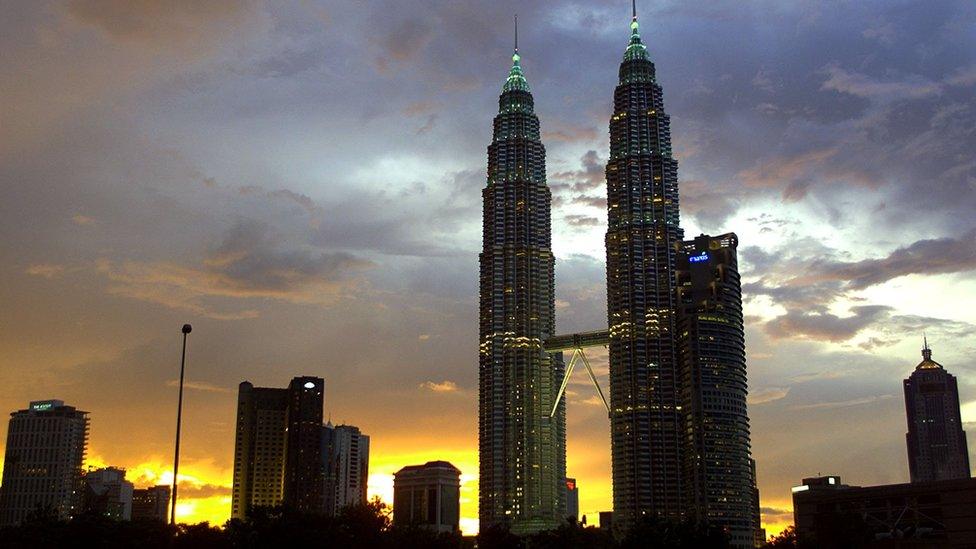
Dawn of a new political era for Malaysia?
Malaysia is holding a general election on Wednesday.
While incumbent Prime Minister Najib Razak looks likely to secure another term, he is facing a strong challenge from his long-time ally, former prime minister Mahathir Mohamad, who has made a surprise return to politics at the age of 92.
Here's what you need to know.
Who runs Malaysia at the moment?
Malaysian politics has been dominated since independence in 1957 by the Barisan Nasional (BN) coalition and its major party, the United Malays National Organisation (UMNO).

Mr Najib is weighed down by allegations of corruption
Najib Razak won a second term as prime minister in 2013 but with a weakened majority in the face of the strongest opposition ever.
Opponents alleged electoral fraud at the time and critics have also repeatedly accused his administration of gerrymandering.
He faces international allegations of rampant corruption in relation to the management of state investment fund 1Malaysia Development Berhad (1MDB).
Who is running against him?
Mr Najib's main rival is former Prime Minister Mahathir Mohamad who is running again for office at the age of 92.
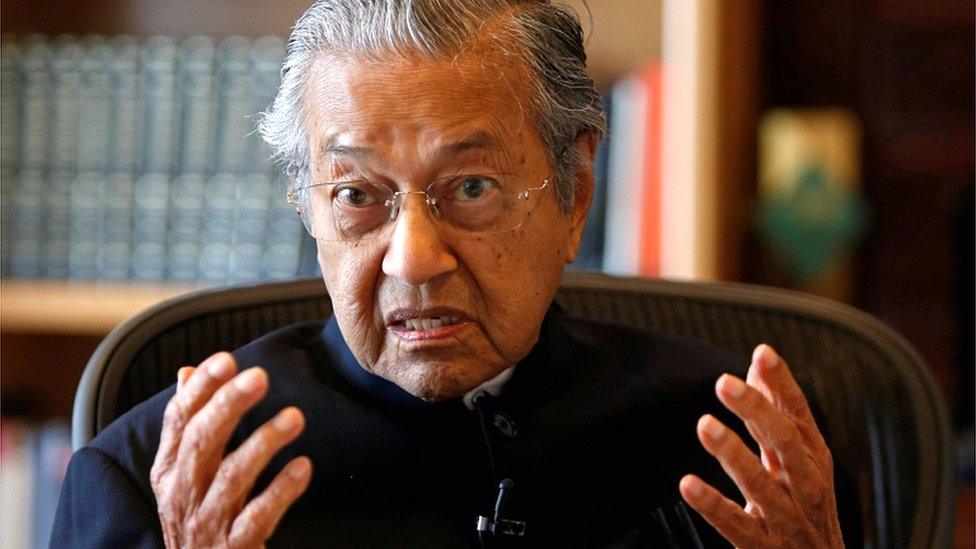
Mahathir Mohamad remains influential in Malaysian politics
Dr Mahathir had stepped down in 2003 after two decades in power. While his tenure is credited with transforming Malaysia into an Asian economic tiger, Dr Mahathir also took a tough stand against those who opposed him or threatened his power.
Formerly Mr Najib's mentor and ally, he had grown vocally opposed to his leadership in recent years.
And in a further twist, Dr Mahathir has said if he is elected, he will aim to hand over power to someone else within two years.
That person could be his own former rival, jailed opposition leader Anwar Ibrahim.
Anwar, Dr Mahathir's deputy and heir apparent in the 1990s, was sacked in 1998 over political differences, and later jailed on sodomy and corruption charges, which he has always denied.
Dr Mahathir has said he will seek a pardon for Anwar, enabling him to run for election and potentially, for the top job.
Will corruption scandals sway voters?
1MDB was initially set up as a sovereign wealth fund by Mr Najib. It was meant to boost the national economy through strategic investments.
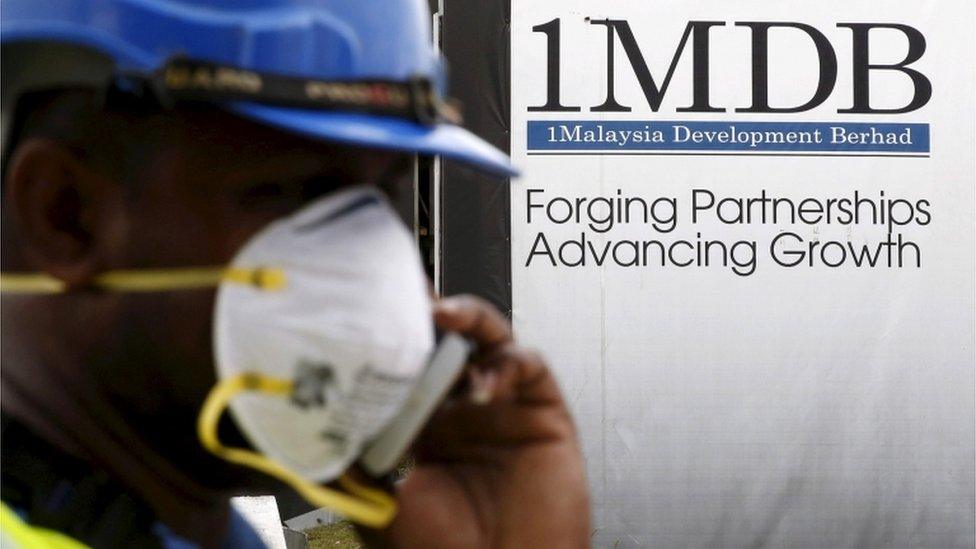
1MDB spawned investigations in other countries including Hong Kong, Singapore and Switzerland
Yet in 2015 it started missing payments, which unleashed a torrent of allegations of embezzlement and money-laundering.
Some $700m (£517m) from the fund allegedly went to Mr Najib's personal bank accounts.
1MDB and Mr Najib deny any misconduct. An investigation by the attorney-general has cleared him of any wrongdoing but failed to convince his critics. Several countries are investigating transactions relating to 1MDB, and several institutions and individuals have been sanctioned over related transactions.
But while the opposition campaign has focused a lot on the 1MDB scandal, the issue has consistently failed to rile Malaysians.
Voters are primarily concerned about day-to-day issues. The cost of living - housing, food, transport and so on - has risen under Mr Najib's tenure and inflation reached an eight-year high in 2017.
Will the elections be free and fair?
Activists say no. Election reform group Bersih 2.0 - which has organised large-scale protests in the past calling for political transparency - has accused the Election Commission of electoral fraud.
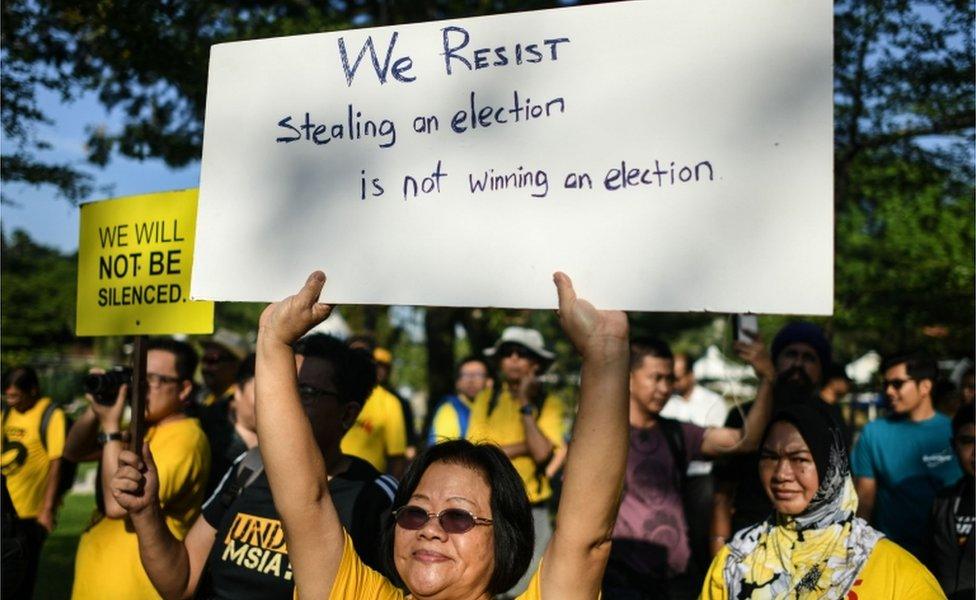
Bersih 2.0 have held protests denouncing changes to constituency boundaries and alleging electoral fraud
It cites 10 "serious crimes", including alleged failure to remove dead people from the electoral roll, irregularities in postal voting, a failure to take action against corruption allegations and allowing the bare minimum time between parliament being dissolved and voting taking place.
The biggest concern, however, has been the allegations of rampant gerrymandering. Activists and the opposition say the recently redrawn election boundaries have ensured constituencies are packed full of Muslim Malays, a demographic which tends to back the government.
The government has insisted the election will be free and fair. Mr Najib told parliament the Election Commission acts "for the good of all, for the sake of people and country".
Opposition politicians and activists also fear that a controversial fake news law is being used to silence critics. At the beginning of May, authorities began investigating Dr Mahathir under the law over his claim that his plane had been tampered with.
Who is going to win?
Voters will elect 222 members of parliament as well as state assembly members in 12 of the 13 states.
Mr Najib is the outright favourite. He and the BN traditionally enjoy the support of Malay Muslims, about 60% of the population.
He has said a win for any other party would be "a nightmare" for ethnic Malays.
The opposition has traditionally relied on ethnic Chinese, Indian and other minority groups.
Malaysia has a first-past-the-post system - the party that wins the most seats takes office. So even if Mr Najib wins, his party could lose seats, reducing his political clout and potentially putting his position as leader in question.
The only thing that gives the opposition a chance is the fact that the Malay vote is likely to be split between the governing, opposition and Islamist coalitions as never before.
A defeat for Mr Najib - though seen as unlikely - would lay political powers for the very first time into the hands of the opposition, setting the country into unchartered waters.
BBC Monitoring, external contributed to this report
- Published5 May 2018
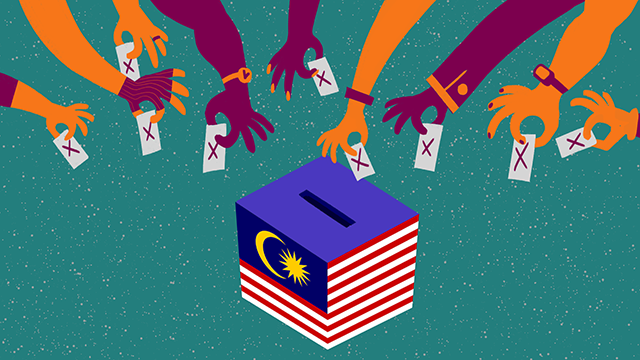
- Published7 May 2018
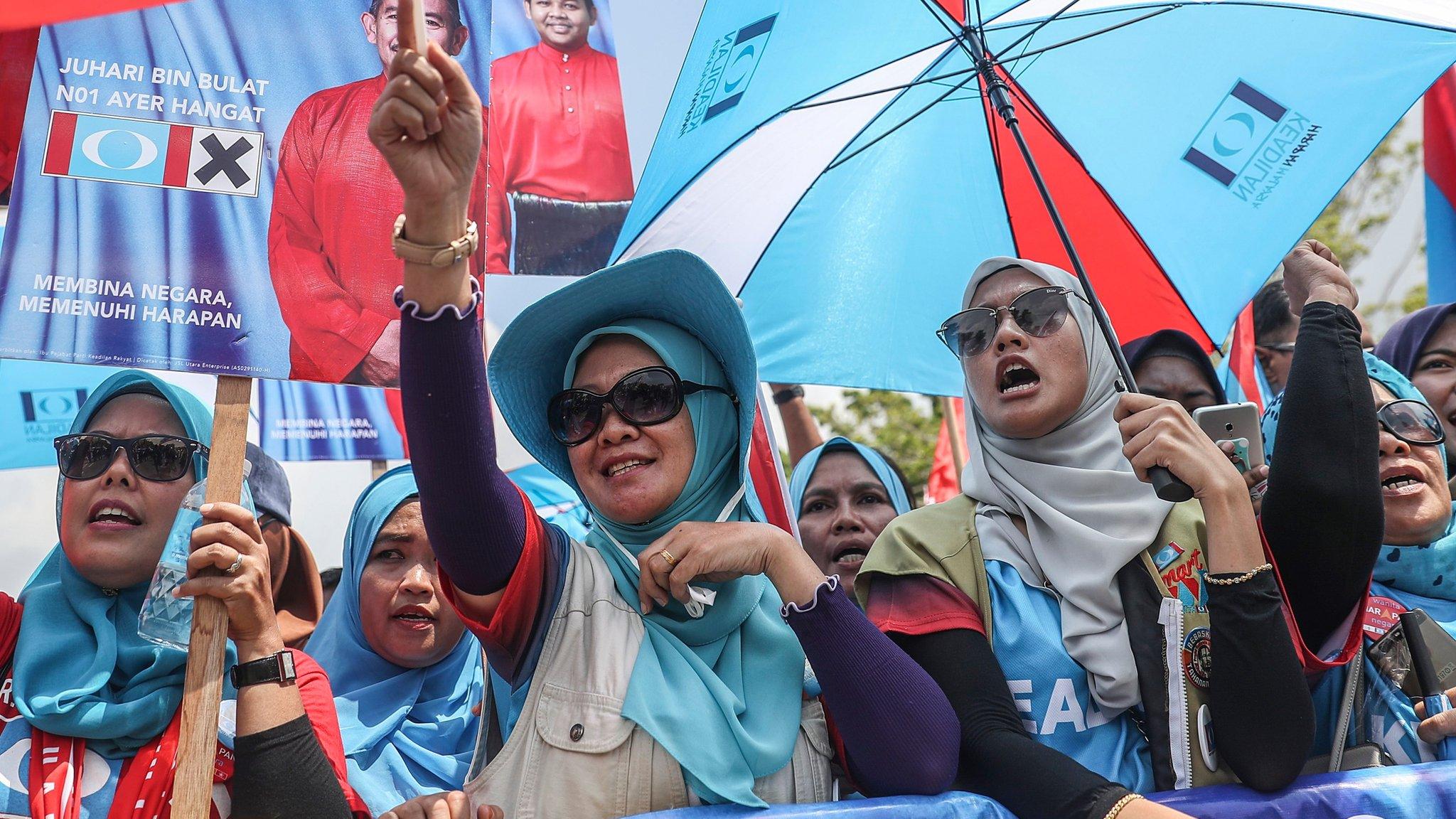
- Published8 January 2018
